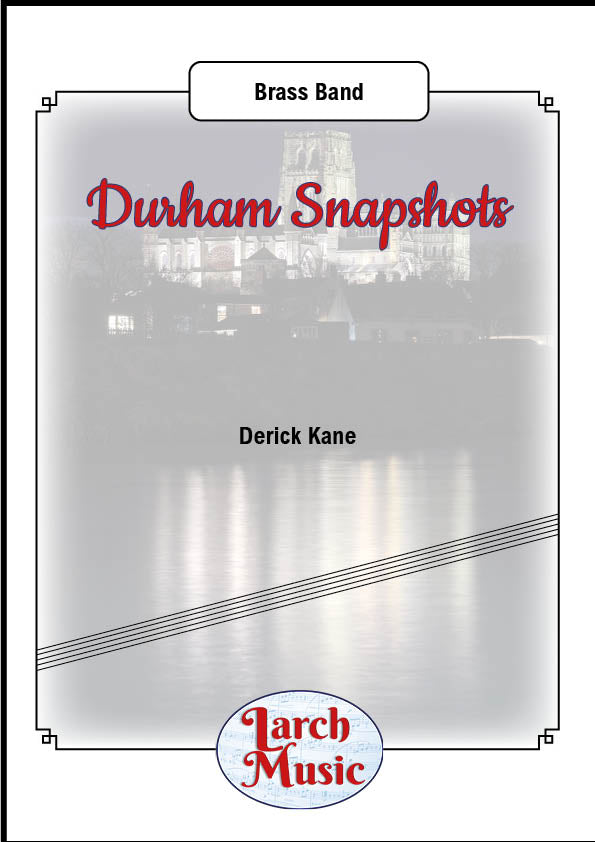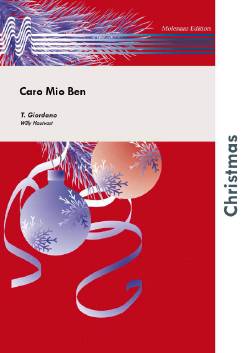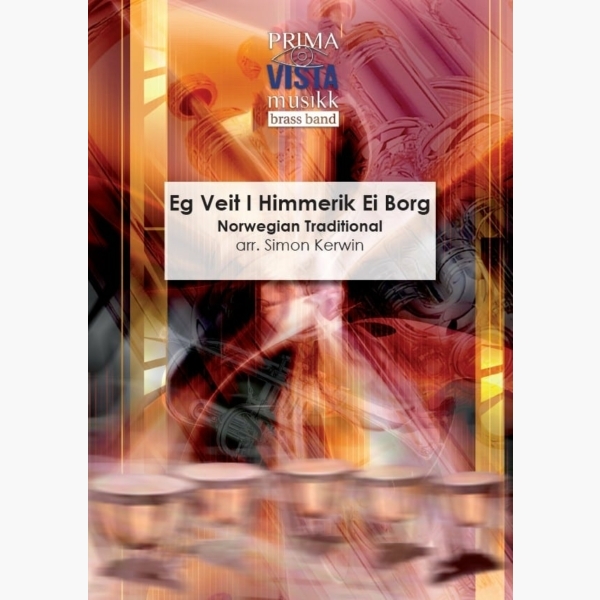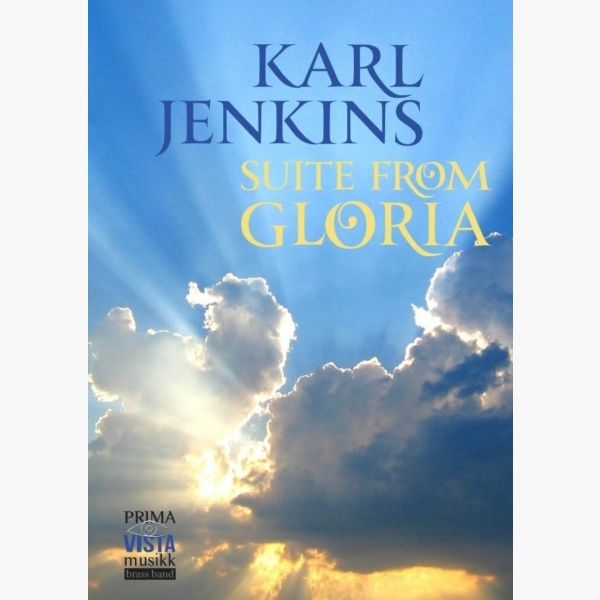Results
-
 £65.00
£65.00Durham Snapshots - Brass Band - LM227
COMPOSER:Derick KaneDurham SnapshotsNew from the pen of renowned euphonium star, Derick Kane, an exciting composition written after a visit to the City of DurhamThis four movement work reflects the sights, sounds and history of the city of DurhamJ.B. Dykes hymn "St Cuthbert' is heard in movement 1 & reprised in the finale, as well as Ralph Vaughan Williams hymn 'Sine Nomine' in movement 31 - Cathedral2 - Riverside Walk 3 - Hymn to The Saints4 - CastleEnter the Cathedral and hear the glorious sounds of the open space and service.A Riverside Walk along the banks of the River Wear watching and listening to the wild life and running water.Hymn to The Saints with glorious harmonies soar through the air.And finally a trip to the castle where you can imagine battles and scourages taking place in this ancient building.One for your next concert to please the audience, and player, alike.
In Stock: Estimated dispatch 3-5 working days
-
 £30.00
£30.00Pentre Ifan - Brass Band - LM948
COMPOSER: Alex McGeePentre IfanPentre Ifan (literally "John's Village") is the name of an ancient manor in the community and parish of Nevern, Pembrokeshire, Wales.It is 11 miles (18 km) from Cardigan, Ceredigion, and 3 miles (4.8km) east ofNewport, Pembrokeshire.Pentre Ifan contains and gives its name to the largest and best preserved Neolithicdolmenin Wales.Suitable for Most Bands - Duration 6 mins (Approx.)
In Stock: Estimated dispatch 3-5 working days
-
 £64.00
£64.00Caro Mio Ben - T. Giordano/Willy Hautvast
Here we have one of the most famous 'Arie antiche' (ancient aria's) from the 18th century, written in the style of Handel. For many years it has been attributed to Giuseppe Giordani, opera and sacred music composer of the Neapolitan school. However, recent investigations clearly established that this song had actually been composed by his son Tommaso (1733-1806). This delicate wind band arrangement by Willy Hautvast can also be performed with a vocal soloist or a mixed choir.
Estimated dispatch 10-14 working days
-
 £24.95
£24.95Eg Veit I Himmerik Ei Borg (Castle in the Sky) - Traditional - Simon Kerwin
Eg Veit I Himmerik Ei Borg (Castle in the Sky) is an ancient Norwegian folk-tune, originating from the Hallingdal area of the country. The words however, are German. They were translated into Norwegian by Bernt Stoylen in 1905, and set...
Estimated dispatch 5-7 working days
-
 £64.95
£64.95Suite from Gloria - Karl Jenkins - Arranged & Edited Childs & Wainwright
The Latin text of the Gloria is an ancient hymn of praise from the Christian tradition derived from the song of the angels who announce the birth of Jesus, as recorded in the Gospel according to St Luke. The Gloria...
Estimated dispatch 5-7 working days
-
£44.95
CHRIST-HYMN (Brass Band Set) - Robert Redhead
Christ-Hymn is an expression of response to the ancient Christian hymn quoted by Paul in his letter to the Philippian church (Philippians 2:5-11). After an opening which creates a tone of sadness and quiet suffering, the following music is a joyous expression of the truth that 'He is exalted', 'His name is above all names' and 'Every tongue will confess that Jesus Christ is Lord'.
Estimated dispatch 7-14 working days
-
 £105.20
£105.20Infinity Forest - Haakon Esplo
The concert overture "Infinity Forest" draws inspiration from an ancient forest, standing majestically, enveloped in mystery and secrets. Venturing into this forest, one never knows what awaits. It lies dark and quiet, interrupted by clearings where the sunlight breaks through."Infinity Forest" serves as a magnificent opening for any concert and is equally an excellent choice for competition repertoire. The music presents challenges of both technical and musical nature for all instrument groups, offering great opportunities to focus on precision, timbres, and intonation. While the lower parts are designed for easier difficulty, the lead parts present greater challenges.
Estimated dispatch 5-14 working days
-
 £114.99
£114.99Keystone - Thierry Deleruyelle
Keystone tells the story of the Odeon of Vriezenveen, a town in the Netherlands. Historically speaking, "odeon" (or "odeum") was the name for ancient Greek and Roman buildings used for activities such as singing, music and poetry. This was the name chosen in 1998 by several members of the 'Vriezenveense Harmonie' for the cultural centre they decided to have built. The piece starts slowly with the bass instruments, then speeds up in a counterpoint passage where the main motif moves from one set of instruments to another. After a slower section, the music speeds up again to reach a majestic chorale symbolising the splendid Odeon. This composition has been orchestrated for brass band to serve as the test piece in the first division of the French National Brass Band Championship of 2023.
Estimated dispatch 5-14 working days
-
 £289.80
£289.80Catharsis - Kjetil Djønne
"Catharsis" explores purification through musical art - a process that provides spiritual renewal and release from moral ambiguities. Its etymology traces back to ancient Greece, but understanding and usage in modern language evolved in the late 18th century. The piece poses cathartic questions through diverse musical elements, from cadences to the ensemble, undergoing changes in tempo, style, texture, and meter. The music embarks on a journey from lyrical expressions to structuralism, from vibrant hues to pale tones, from unrest to tranquility, and from jazzy interludes to grand fulfillment.
Estimated dispatch 5-14 working days
-
 £65.00
£65.00Smoke Sketches - Daniel Hall
Smoke Sketches is Daniel Hall's first original work to be published in the Faber Music Brass Band Series. Daniel is one of the most gifted of the rising generation of composers writing for brass bands. Smoke Sketches was composed at the invitation of Brass Bands England for the Intermediate Section of the 2017 National Youth Brass Band Championships of Great Britain. This colourful, jazzy suite draws inspiration from the ancient art of gazing into smoke from fire to find stories through the act of divination. Into the Blaze suggests someone briskly fire-walking, barefoot, with unexpected sparks fizzling from the ground. A Lonesome Ember capturesthe fleeting life of a small ember, beginning insignificantly and gradually evolving into a larger being before disappearing into ash, while Spark of Light bristles with life and energy. Band Grade 3/4, duration 8 minutes.
Estimated dispatch 5-14 working days


